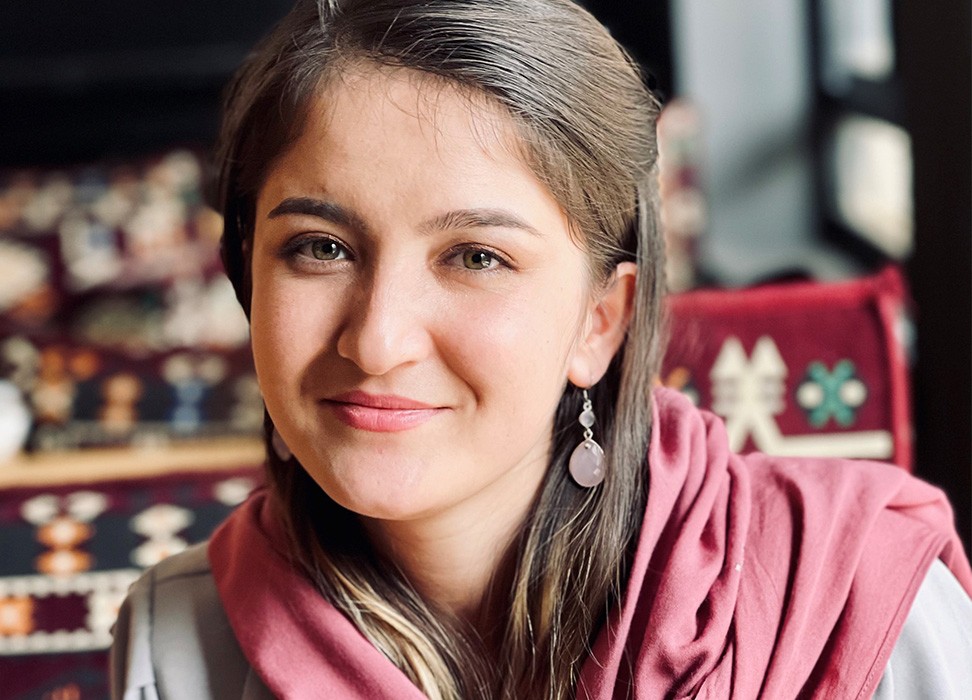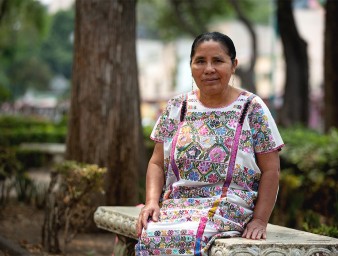Women journalists must be protected from violence and harassment
03 May 2023

In 2020, Zuhal Ahad, a 27-year-old Afghan journalist from the Hazara community, was working for the BBC covering women’s affairs in Afghanistan. As a woman journalist working in Afghanistan, she has always been a target.
After she lost a friend, a human rights activist, in a car bombing incident, Ahad felt she had to be more careful by avoiding public transportation and switching her driving routes and vehicles on the days that she would to her office or investigate a story. In July 2021, a month before the Taliban took over Afghanistan, the threats got even worse.
“Me and my family were threatened because of the work that I was doing, so I even had to stay at home for several months and not even go to the grocery store,” she said. “I left the country because my life and my family’s life were more important to me than anything else at the time.”
It was then she left with her daughter and husband for the United Arab Emirates and then to Canada where she continues to work as a freelance journalist for the Guardian and Al Jazeera covering Afghanistan. She’s also currently a journalism fellow at the University of Toronto.
“I had to leave my friends, family, my whole life behind and start over,” she said.
According to UN Human Rights, there is an alarming trend towards the shutdown of freedom of speech and media freedom, especially against journalists worldwide. Globally in 2022, 87 journalists were killed, the vast majority with impunity, and 323 were imprisoned.
In Afghanistan, the United Nations Assistance Mission in Afghanistan (UNAMA) Human Rights Service has reported on numerous instances of human rights violations against journalists and media workers since the Taliban takeover. Many women journalists like Ahad work in fear of invasive monitoring, surveillance, and harassment, according to the Office.
“Every threat to a journalist is a direct attack on freedom of information, opinion and expression – fundamental rights that belong to all of us,” said UN Human Rights Chief Volker Türk in a statement to mark World Press Freedom Day. “The safety of journalists is not just a question of personal security; it is a question of the safety and health of entire societies.”
“But as we mark 30 years of World Press Freedom Day, all around the world, we are seeing the forceful closure of those frontiers and an alarming and aggressive trend towards the shutdown of freedom of speech,” he said.
The promise of the Universal Declaration of Human Rights confirmed all people the right to freedom of expression and access to information, Türk added. As part of the 75th anniversary of the UDHR, UN Human Rights will devote the month of May to highlighting critical voices and debate, to ensuring the safety of journalists and to protecting the civic space.
“
Without freedom of expression – a great enabler of all our other rights - there is very little freedom at all.
“
Volker Türk, UN High Commissioner for Human Rights
Risking it all for the truth
There are very few women journalists left in Afghanistan, Ahad said. She puts this loss down to threats, like ones she received and the obliteration of media freedom. According to UNAMA, while women are still legally allowed to work in the media, there are many restrictions imposed on women in media which made many unable to continue.
The women who continue to do this work have to stay anonymous when they publish stories because they can’t take any chances being revealed, Ahad explained.
“They do this work to tell the stories of the people, and they still do it knowing that if the Taliban catches them, they would be raped, they would be harassed, they would be even tortured and killed,” Ahad said. “But they still take the risk and continue to do their work.”
Ahad said while she feels safer in Canada, she still receives online threats all the way from Afghanistan. For example, a story she wrote in 2022 on a ministry that told their women employees to not come to work anymore because the Taliban banned them and ordered them to stay home garnered a lot of pushback on social media.
“When we published it, I received a lot of messages on Twitter from Taliban members who were threatening me, saying that I was an infidel and I was sitting abroad and telling lies,” Ahad said.
“
These threats give me nightmares at night, and it takes peace from me. But as a journalist, I feel responsible, I must have a voice and tell these stories.
“
Zuhal Ahad, Journalist
Ahad said it is the responsibility of all stakeholders to provide safety for journalists because they are doing a vital job and they need to feel safe to be able to do their job properly.
Türk also called for stronger national frameworks, that puts human rights first.
“With better monitoring of threats against journalists, and better legal and psychological support provided to them when harms occur,” he said. “And, crucially, with systematic investigation and prosecution of crimes against journalists.”
“It is a moral imperative – for the future of all of us - that we do everything possible to protect it.”



